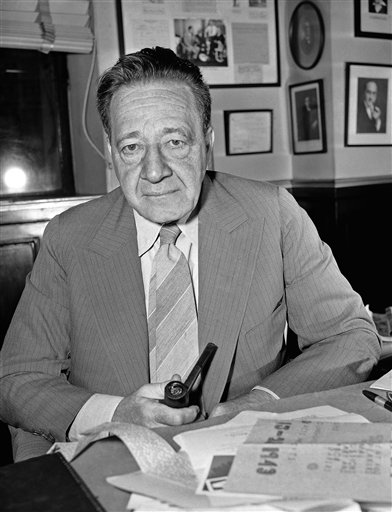Arthur Garfield Hays (1881–1954), one of the founding members of the American Civil Liberties Union (ACLU) in 1920, was a long-time member of the ACLU’s national committee and served as its general counsel until his death.
Hays was corporate lawyer
The New York Times described Hays as “the lawyer who grew rich representing corporations and who became famous defending civil liberties without pay” (quoted in Walker, p. 53).
Born into a wealthy family in Rochester, New York, Hays earned a B.A., M.A., and LL.B. from Columbia University. After a short stint in a corporate law firm, he set up the firm of Hays, Kaufmann & Lindheim and, after it was dissolved, founded Hays, St. John & Abramson.
Hays is best known for defending First Amendment freedoms
Although Hays had many corporate clients, he is best known for his defense of First Amendment freedoms.
He served with Clarence Darrow defending Tennessee educator John Scopes for teaching evolution in the Scopes monkey trial of 1925. He successfully defended irascible journalist H. L. Mencken in a case designed to test Boston’s restrictive laws against obscenity.
He defended the Scottsboro Boys against false rape charges in Alabama in the 1930s. And he took numerous cases defending the rights of union members to organize.
John Vile is professor of political science and dean of the Honors College at Middle Tennessee State University. He is co-editor of the Encyclopedia of the First Amendment. This article was originally published in 2009.

